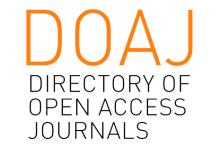Resource information
Metropolitan areas are concentrated and dense areas filled settlements and include a central urban region with its surrounding residences. Severity and complexity of issues in metropolitan areas along with intricacy and quantity of influential factors in these areas necessitate novel approaches and innovative solutions for comprehensive strategies and management coordination of land use in these regions. The present study has taken this approach to investigate management structure and spatial planning in Tehran metropolitan area. The study takes parameters like political and management decentralization, elements affecting urban management based on the sources of power and province and finally spatial domain of urban management into account. Findings revealed that decentralization in national management and political structure has limited tasks and authority of urban management. In this regard, a closer look at management structure and spatial planning of Tehran metropolitan are demonstrates that the government and its element dominate policy making, planning and spatial management of the city and inherent position of municipality and city council suffer weaknesses in their role as urban management. Results from investigating official tasks in urban management elements and their spatial domain reveals lack of coordination and Fragmentation in management structure and spatial planning in the region. The paper attempts to discuss these Fragmentation in the fields of management, function, politics and domains.



